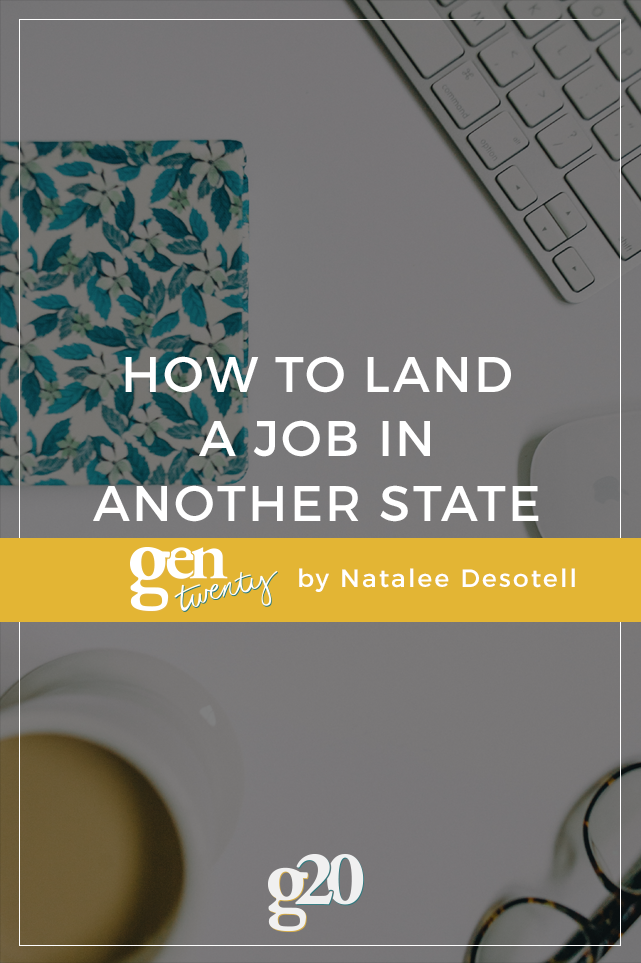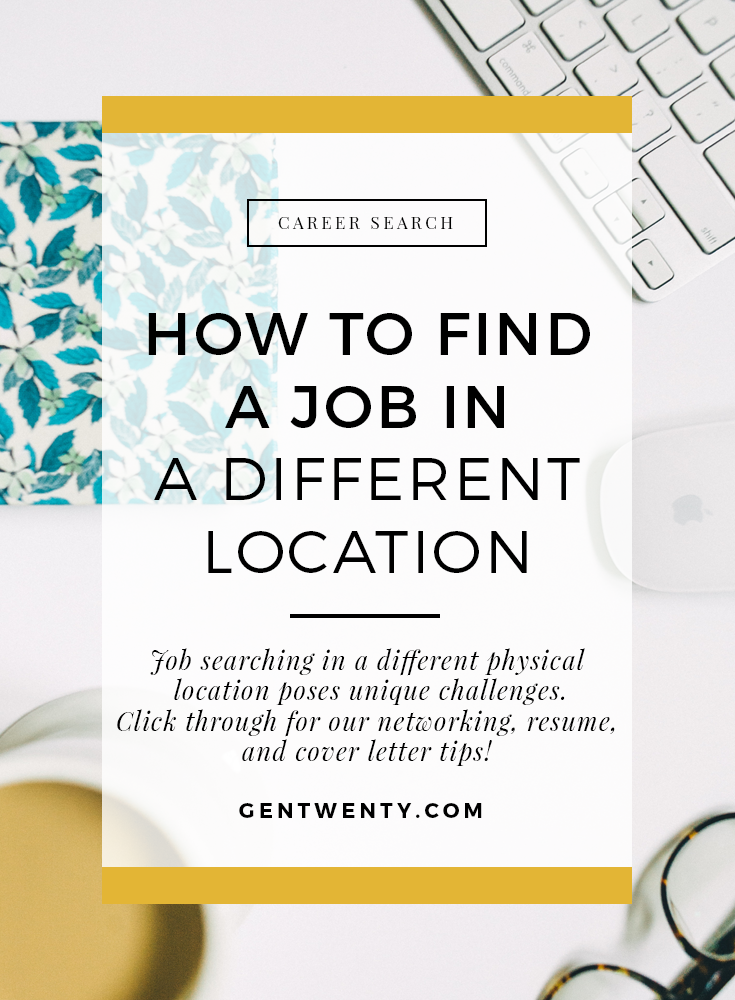
It doesn’t matter if you’re moving for love, relocating for school, or are succumbing to the magnetic force pulling you towards the Pacific Ocean. Snagging a new job from afar is tricky business.
Whether your new lease is signed and your arrival date is set in stone, or if you’re open to wherever the wind blows you, these ideas will help you in your search. It’s a smattering of things I’ve learned from helping my husband apply for jobs in the city where I’m moving for school.
Let’s get down to the address-on-your-resume question right away.
I browsed several similar articles while helping my husband apply to jobs, and nearly all of them suggested adding a local address to your resume. They say you should use a friend or family member’s address if you know of one in your destination city. Putting another person’s address on your resume? Sounds shady to me.
We decided to eschew that advice because it’s not really our style. If we don’t live there yet, why try to make it look like we do? Things will just get awkward when they request an in-person interview and we have to ask them to Skype instead.
I get why this is a thing; companies want to avoid paying for a new employee to relocate. Maybe they’ll give your application a little more attention if it seems like you’re conveniently just down the street.
But, instead of playing a strange game of “Where In The World Is Carmen Sandiego?” with your potential employers, be upfront with them.
Briefly mention in your cover letter or objective statement that you are relocating from City A to City B. If you have a time estimate for when you’ll move, include that, too. Provide your current address if you want, but it’s not necessary unless you’re applying for a federal job.
We happen to know what our address will be in our new city, but of course we don’t live there yet. On my husband’s resume, we included both addresses and specified the dates that each address will be valid. This is only a reasonable option if your resume is designed such that the addresses do not take up significant space. I mean, this is pretty unimportant info in the scheme of things. Leave it off if you’re unsure.
Free Webinar: How to Write the Best Job Application of Your Life
Speaking of the more important things: networking is your friend.
You can use LinkedIn to search for people in your industry that live in your new city. A premium account can make this a more fruitful endeavor, but you’ll be able to create some new connections with a free account, as well.
LinkedIn is one of the few networking sites where creeping is encouraged. Search for people based on interests, skills, and geographical area. Shoot them a friendly message if it seems like you have some interests in common. Someone who does graphic design work in Austin, Texas might be able to tell you about a design firm that’s currently hiring. They also might ignore your message; it’s hit or miss, but it’s always worth trying.
[clickToTweet tweet=”How to Find a Job in Another State” quote=”How to Find a Job in Another State”]
Alumni associations are great for expanding your network.
If your new city is big enough, you’re bound to find a group. Most universities keep an updated website with their alumni association information; check yours out and see if you can find contact info for them.
Just like you’d start a cold email for an informational interview, give them a little information about you and ask if they have any leads on jobs and/or alumni working in your field.

As for the way to organize your job search, I’d suggest creating a spreadsheet.
Include potential employers, and relevant attributes like salary (or salary range), link to the job posting, application status, and location. Update this spreadsheet anytime there is even a minor development in the job search, including all correspondence and related dates.
You don’t want to miss an opportunity at American Finance Corporation because you accidentally thought your 11 a.m. Skype interview was with The American Financiers. I made those companies up, but the point is to keep your sh*t straight.
Salary expectations.
Salary is always a major part of the equation when you’re looking for a new job, but when you’re moving to another state, there’s an added level of complexity. You need to have realistic expectations about how the cost of living compares to your salary.
You might be moving to a state where the cost of living is far greater than your current home. In this case, you’ll need to find a job that pays more in order to maintain your standard of living. If you’re moving somewhere with a lower cost of living, you might be able to consider a drop in income if you are gaining some other benefit (like, for example, if it’s your dream job).
Understanding what your new state’s income tax code looks like is a major part of this, too. If you’re moving from North Dakota to California, for example, you’re in for a major shock when your income tax goes from about 3 to 13 percent. These are just a few of the factors you’ll want to consider when perusing job postings.
If I had to boil my advice down to just a few words, I’d say: a) research thoroughly what you’re getting yourself into, and b) trust your best judgment.
For every article that tells you to zig, there’s going to be another one that tells you to zag (this one included). Go in the direction that feels most authentically you.
